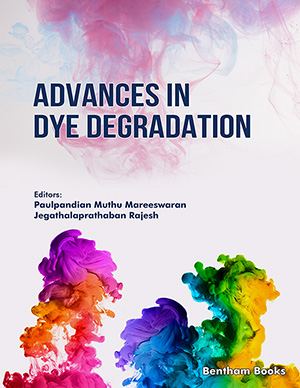Abstract
Hepatitis C virus (HCV)-host interaction, namely the host immune reaction against various viral proteins, determines viral persistency and the severity of liver damage. The strong lymphotropism of HCV has been proven to be responsible in part for its ability to evade the peripheral immune response and possibly the frequency of HCV-related autoimmunity. Various mechanisms were reported to be responsible for HCV persistency and its association with autoimmunity. Of these, enhanced T cell apoptosis was reported to contribute to viral persistency and disease severity. The issue of HCV-related autoimmunity has partly been shown to be related to the resistance of CD5+ B cell subpopulation to apoptosis. Autoimmunity has been reported by many to include a wide range of autoantibodies such as rheumatoid factor, ani-cardiolipin and smooth muscle antibodies. In this review our aim is to summarize the data on the mechanisms responsible for HCV persistence and HCV-related autoimmunity. We will try to determine the importance of autoimmunity in the evaluation of chronic HCV infected patients.
Keywords: Chronic hepatitis C virus, Autoimmunity, Virus persistence, Anti-nuclear antibodies
Current Medicinal Chemistry
Title: Chronic HCV-Related Autoimmunity: A Consequence of Viral Persistence and Lymphotropism
Volume: 14 Issue: 5
Author(s): A. Kessel and E. Toubi
Affiliation:
Keywords: Chronic hepatitis C virus, Autoimmunity, Virus persistence, Anti-nuclear antibodies
Abstract: Hepatitis C virus (HCV)-host interaction, namely the host immune reaction against various viral proteins, determines viral persistency and the severity of liver damage. The strong lymphotropism of HCV has been proven to be responsible in part for its ability to evade the peripheral immune response and possibly the frequency of HCV-related autoimmunity. Various mechanisms were reported to be responsible for HCV persistency and its association with autoimmunity. Of these, enhanced T cell apoptosis was reported to contribute to viral persistency and disease severity. The issue of HCV-related autoimmunity has partly been shown to be related to the resistance of CD5+ B cell subpopulation to apoptosis. Autoimmunity has been reported by many to include a wide range of autoantibodies such as rheumatoid factor, ani-cardiolipin and smooth muscle antibodies. In this review our aim is to summarize the data on the mechanisms responsible for HCV persistence and HCV-related autoimmunity. We will try to determine the importance of autoimmunity in the evaluation of chronic HCV infected patients.
Export Options
About this article
Cite this article as:
Kessel A. and Toubi E., Chronic HCV-Related Autoimmunity: A Consequence of Viral Persistence and Lymphotropism, Current Medicinal Chemistry 2007; 14 (5) . https://dx.doi.org/10.2174/092986707780059652
| DOI https://dx.doi.org/10.2174/092986707780059652 |
Print ISSN 0929-8673 |
| Publisher Name Bentham Science Publisher |
Online ISSN 1875-533X |
Call for Papers in Thematic Issues
Advances in Medicinal Chemistry: From Cancer to Chronic Diseases.
The broad spectrum of the issue will provide a comprehensive overview of emerging trends, novel therapeutic interventions, and translational insights that impact modern medicine. The primary focus will be diseases of global concern, including cancer, chronic pain, metabolic disorders, and autoimmune conditions, providing a broad overview of the advancements in ...read more
Approaches to the treatment of chronic inflammation
Chronic inflammation is a hallmark of numerous diseases, significantly impacting global health. Although chronic inflammation is a hot topic, not much has been written about approaches to its treatment. This thematic issue aims to showcase the latest advancements in chronic inflammation treatment and foster discussion on future directions in this ...read more
Cellular and Molecular Mechanisms of Non-Infectious Inflammatory Diseases: Focus on Clinical Implications
The Special Issue covers the results of the studies on cellular and molecular mechanisms of non-infectious inflammatory diseases, in particular, autoimmune rheumatic diseases, atherosclerotic cardiovascular disease and other age-related disorders such as type II diabetes, cancer, neurodegenerative disorders, etc. Review and research articles as well as methodology papers that summarize ...read more
Chalcogen-modified nucleic acid analogues
Chalcogen-modified nucleosides, nucleotides and oligonucleotides have been of great interest to scientific research for many years. The replacement of oxygen in the nucleobase, sugar or phosphate backbone by chalcogen atoms (sulfur, selenium, tellurium) gives these biomolecules unique properties resulting from their altered physical and chemical properties. The continuing interest in ...read more
 3
3
- Author Guidelines
- Graphical Abstracts
- Fabricating and Stating False Information
- Research Misconduct
- Post Publication Discussions and Corrections
- Publishing Ethics and Rectitude
- Increase Visibility of Your Article
- Archiving Policies
- Peer Review Workflow
- Order Your Article Before Print
- Promote Your Article
- Manuscript Transfer Facility
- Editorial Policies
- Allegations from Whistleblowers
- Announcements


























